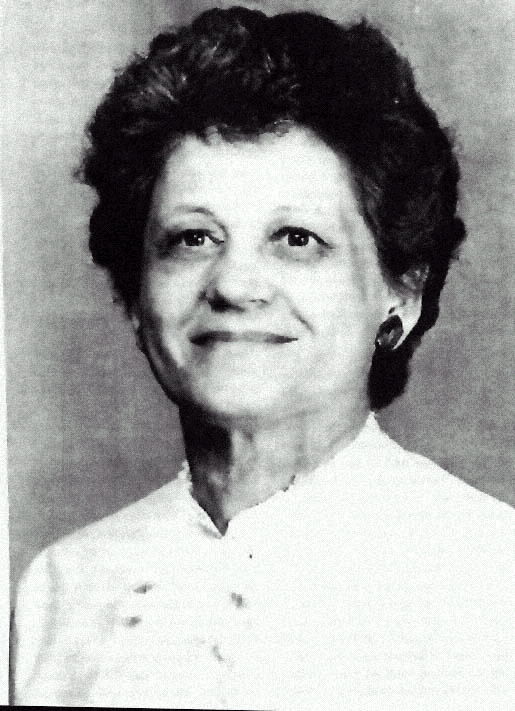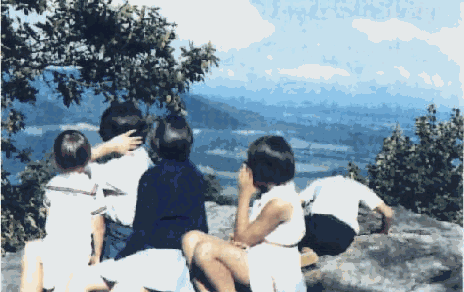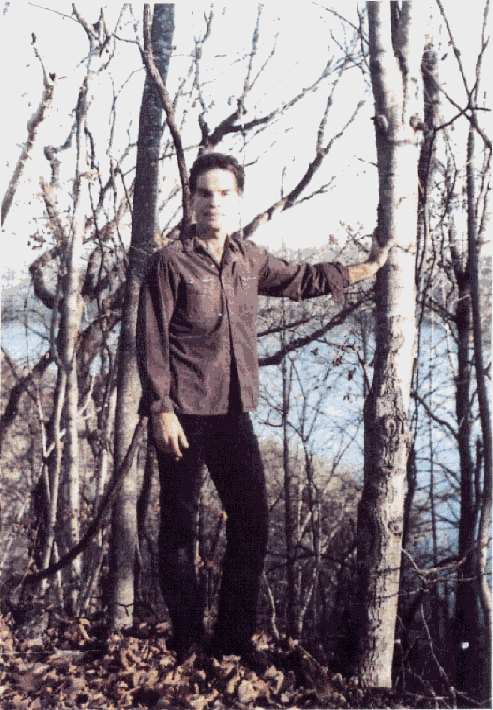|
Click here for Next Section |
A Country Rag

If you missed "La Voix des Femmes: The Saga of Violette Wakeland" -- Part One, click here, or Part Two, click here. "Women are now in the majority online. In May, 50.4 percent of U.S. Internet users were women, Media Metrix said Wednesday. That's still below the percentage of women in the overall U.S. population, which according to Census figures is 51.1 percent. The study was based on Media Metrix measurements of more than 55,000 home and business users." -- Associated Press, Survey Finds More Women Than Men Online
Rivers Side
A resident of middle Tennessee, karol cooper is a technology and gardening enthusiast and a published entrepreneurial writer of articles and to-date six books, including two co-authored with her husband, a professional musician and sports writer, published by Walnut Grove Press. Family genealogical research recently revealed that her paternal blood heritage is Melungeon (believed to be a mixture of Chippewa, African-American, Scottish and English). Research has been one of her lifetime loves and she is involved now in scholarly explorations, including a non-fiction book project, of possible relationships between incest, cellular biology and linguistics.

This is part three in a continuing series about Violette Wakeland. Please refer to ACR archives for parts I and II. kcLa Voix des Femmes: The Saga of Violette Wakeland by karol cooper
Part III: Fire on the Mountain
In April of 1964, four months after Ray’s death, Violette moved into her new abode at Sunset Rock. At last she had a place to call home! Her memoirs convey her happiness in that fact, but being continually misjudged weighed heavily upon her. In times of stress work had always been an essential diversion for Violette. With the completion of her new home behind her, she plunged headlong into the task of reorganizing her life. Work stimulated her dreams for the future. Life is always in stages of perpetuity; the human spirit is resilient. I put all things in order with expectancy, and that expectancy of the future gradually relieved my paralysis of body and soul. Finally she was able to resume her teaching. The response of the students to her sorrow was gratifying; their exuberance and interminable energy revived her. Relationships with students at the high school evolved into gratifying rapport. I was amenable to their teenage needs. This was the sixties, a time of protests, and they were caught up with the trend of the times just as I had been in the transitional times of the 20s. Her students confided in her, trusted her. She went to bat on their behalf and revived the prom; she arranged field trips for them; she counseled with them about family problems and boyfriends. I suppose I imposed teaching demands upon myself that weren’t entirely necessary but I felt the needs of my students so greatly that the work began to take toll of my physical stamina. During her teaching years. Violette formed a solid relationship with one of her students, Sanford McGee. Sanford was president of the student council and a good scholar: Violette taught him sophomore English. Sanford describes Violette's teaching style as "tough and fair," and his valuable tutoring at her proverbial knee changed him for life. He was a member of the Youth Leadership Conference, and as a result he attended meetings in Violette's home on Sunset Bluff. Those meetings in the magical setting of Sunset Rock solidified Sanford's deepest desire to live a life that was "fully engaged" — one that embraced life to the hilt, a life surrounded by nature and the arts. Violette's influence changed Sanford's life. Today he says, "She invited me into her life and I said 'yes!" 
Yet life at school was not all roses. After giving her soul to educating and nurturing the youth of her area, Violette was constantly under the gun, called into the principal's office to give an accounting of every action. A student confided more and more of the slanderous remarks the townspeople were making; Violette sensed a deliberate surveillance by the principal; the work load was staggering; she felt the tension of harassment and the emotional impact of unfair conditions. All these factors began to add up to more than she was physically and emotionally able to bear. I was in a state of total physical collapse. I had to garner enough strength to function for necessities, but driving the car was a matter of considerable caution. I moved in a state of stupor, hardly being aware of my immediate circumstances. Things reached such an impossible state with Violette’s health that she consulted a doctor who discovered a tumor on her thyroid: He stated that its growth had been precipitated by tension. Violette realized that her body was giving her a clear signal, that the added pressures she was experiencing at school were literally killing her. In an effort to save her own life and sanity she retired from teaching.Retirement was good for Violette. Her life at this point was full and rich. In the company of her many friends, there were concerts and musicals and plays, midnight hikes on the state-park Fiery Gizzard trails to read poetry by candlelight, and foreign travels. Her interest in the events of the world around her are evidenced by her journal entries: Three I recall a conversation with my nephew back in the 30s when we talked about possibilities of walking on the moon. I thought it was an absurd idea — how could we possibly overcome gravitational problems? I feel fortunate to have lived in this marvelous age of technology. If only mankind could get it through his numbskull that this knowledge should be used for the betterment of mankind.With retirement under her belt, and a firm decision to disregard the treatment of the locals, Violette’s life took an upward turn. She felt her strength returning. Friends and family continued to be a source of great joy for her. Her daughter Virginia, with husband Ralph and their five children, had settled in Wisconsin. Virginia tells a wonderful story, heavily sprinkled with laughter, about one of their visits. Virginia and family started out from Wisconsin for a trip to Florida. To accommodate their substantial belongings, Ralph built a rack on top of the station wagon, then an enclosed box to strap on above that, and finally topped off the whole conglomeration with a sailboat! They drove to Violette’s to spend a couple of days before continuing on to Florida, and as they were preparing to leave, Ralph suggested that Violette accompany them on their vacation. Hurried packing followed, and as they loaded into the jam-packed station wagon, Violette looked around at Fa-Fa and decided she simply couldn’t leave him behind. So Fa was loaded into the car with the three adults, five children, and various and sundry supplies. Rumor has it that their majestic cruise through sleepy "downtown" Monteagle was an event that caused wonder and gossip for the next five years.

There were many happy memories of treks between the two homes: Virginia in her Wisconsin north woods and Violette on her beloved Rock. When Violette was unable to make to visit her family in the north, the family came to Sunset Rock. Violette took all five grandchildren on nature hikes, taught them to identify flowers and wildlife, instilling in them her love of nature. Writes Deb (one of the grandchildren): When we visited we kids slept in one room on the top floor, up a steep narrow flight of stairs. Just before dawn a tremendous racket’d awaken us. Through the open window which allowed every bird in the woods access to our defenseless unshielded ears, came the morning wake-up call, "I am here and I am I!" was the song of all those millions of avians. The sound of it was beyond song, beyond melody; all of those delicate trills piled each upon each became a startlingly intense wall of sound, coming at us out of the barely lit sky outside our window. We crept out of our nest of quilts on the floor and leaned on the sill, trying to catch a glimpse of what was making all that noise. But it was too dark and besides, the birds had too many hiding places in the woods. Sometimes we’d catch a flirt of wings in our peripheral vision, or a leafy springboard rustling, the diver already gone. And all the time that screeching, shrieking, and shrilling! After a half-hour or so, when the sky began to lighten definitely, the birds quieted down somewhat and we could go back to sleep. Violette’s strength had returned in such force that when faced with the disappointment of a dry well, she expressed her courage and good spirits once again. A problem arose in the water supply from the well that we had drilled shortly after purchasing the property. It did not yield copiously even from the beginning but we had hoped it would provide adequately for our use. I soon discovered that any average demand would exhaust the supply. The well was determined a "dry hole." I dreamed of a hookup with the town, but during the interim, I could catch rainwater for general use and bring in what was necessary for cooking and personal use. The "interim" lasted six years! In 1972, when Violette was 65 years old, there was a momentous event in her life, something that would set her feet on a different path and open doors for her into the world of the arts where she had always longed to be. Monty Wanamaker returns to Tennessee! This is the beginning of a friendship that will lead to numerous changes in my lifestyle. His career as an artist will entail us contacts in artistic fields that would have been denied me under ordinary circumstances.  For over 20 years, Violette’s platonic friendship with Monty provided a mainstay in her life. Even today, three years after her death, when Monty speaks of Violette it is with many pauses to regain his composure. For 20 years they had morning coffee together, ate their dinner meal together, discussed all aspects of their lives, offered each other encouragement and support — they were best friends. After much deliberation, Violette sold a plot of her prime bluff property to Monty to build his studio/home. The land was located about one-quarter of a mile along the bluff from her house. Doing most of the work by hand, she pitched in to help him clear a path for a roadway through the woods, then made a clearing for the building site. Monty had bought an old house in the valley (for $600) to be recycled into his studio/dwelling. When the wreckers carefully removed the siding they found the original log structure underneath. This was an exhilarating windfall — Monty had dreamed of having a log house in keeping with his affinity for nature. There were two fireplaces made of handmade bricks which he later incorporated into plant boxes next to the fireplace. The stones from the dismantled fireplaces were strewn about, and she and Monty went later to gather them for use in the reconstruction. The rafters, joists and paneling were of the finest old lumber. Reconstruction of the old log house was an absorbing procedure. Monty had engaged a mountain-man builder, Gordon Childers, to disassemble it. Each log was numbered and coded, then brought to the building site for exacting reconstruction. Another woodsman brought his rusty, decrepit-looking hoist to lift the logs into place — the "raisin," as it was called. Violette helped Monty chink the logs while Childers cut shake shingles from white oaks found on the premises. These hand-hewn shingles make a roof that is leak proof. The fashioning of the shingles was a fascinating innovation for me as I saw the use of tools invented by early settlers who used available resources to make shelter for themselves. Working in this atmosphere of originality was a stimulating venture for me as I felt in touch with creative resourcefulness that has been gradually replaced with robot-like mechanical devices. People in the community viewed us with interesting confusion. In March of that eventful year Violette was awakened at 4:00 am by her faithful dog, Fa. To her amazement she realized there was nowhere for him to sit or lie down — the entire floor was flooded with about an inch of water! Further investigation found rugs floating while water poured in like a spigot from a wall outlet. Rather than view this mishap as misfortune, Violette’s view is quite enchanting. Amazing event! That one could be flooded here on the mountaintop. Later I was to experience a spring bubbling through in the closet corner of the bedroom! Later in 1972, ten years after Ray’s death, Violette wrote that she spent the month of October clearing brush, raking and trimming below the bluff at The Rock, perhaps with some feeling of premonition. On October 28th at seven in the morning she received an alarming phone call — there was a forest fire raging below The Rock and it was spreading fast. In a panic she called Monty, and their investigation revealed that flames had climbed up as far as The Rock in a line along the bluff and were moving toward both homes. With help from the volunteer fire department and forest-fire fighters, they were finally able to bring the blaze under control. But Violette was to find that her fight with fire on the mountain was not over. Halloween. At 1:00 am Fa wakens me with urgency to be let out of the house. He is disturbed and goes toward The Rock. His bark is a signal of distress and I follow him to see what he is trying to tell me — at the edge of the bluff I look down and see the entire roadside is on fire." The fire was of such magnitude that the fire fighters worked all night and well into the next day getting it under control. Violette threw every inch of her 5’6" frame into the fight — beating at the flames with blankets, tossing debris away from the fire, and clearing a firebreak with hand tools. This time everything was burned on the bluff side of her premises including the area directly below the Rock. 
Two days later an urgent call came in —another fire was burning in the woods just below Monty’s place! By the time they got to the bluff the flames were only ten feet from his house, and were spreading rapidly. Monty tells the story of how, believing his home to be lost to the inferno, he rushed to cram every single thing he owned into his small car. As he raced out the same dirt road so often closed by the Assembly, he met Gordon Childers astride his trusty bulldozer, heading straight toward the fire. Together they returned to battle the fire, with Childers frantically roaring up and down the bluff’s edge on his ‘dozer, clearing a firebreak. The situation seemed hopeless. There was no way we could save the house. Up to now I had contained my emotion over the whole distressing aspect of the week. This moment was too much. "Dear God," I cried, "Help us." At the very moment of this distress call the wind switched directions to blow the flames away from Monty’s house. Violette had escaped the wrath of the forest fires, but the police later determined that the fires were caused by another kind of wrath: They were set by an arsonist in an effort to drive out Violette and Monty. Following up on a tip, the police were able to capture the fire-starter, and he was jailed. Once again Violette had faced the mountain’s challenge and won.
|